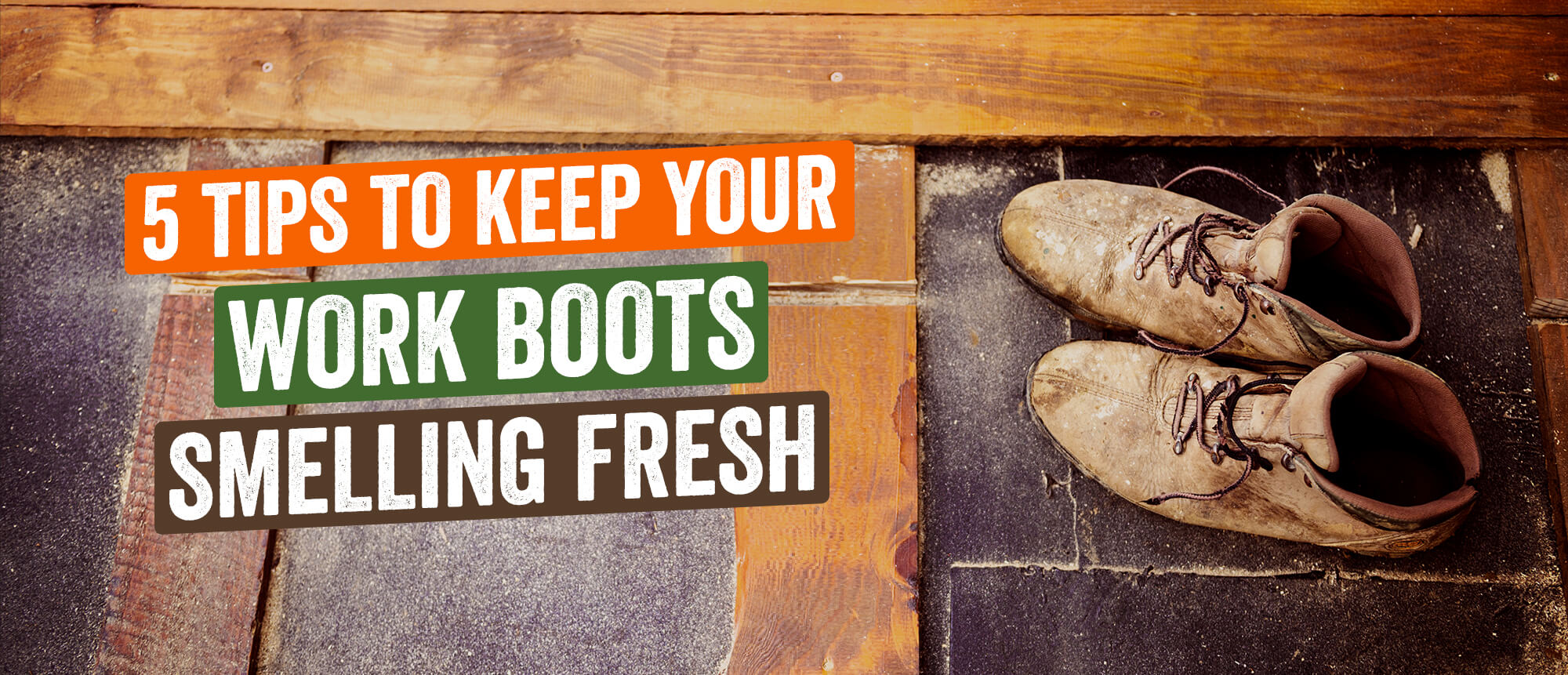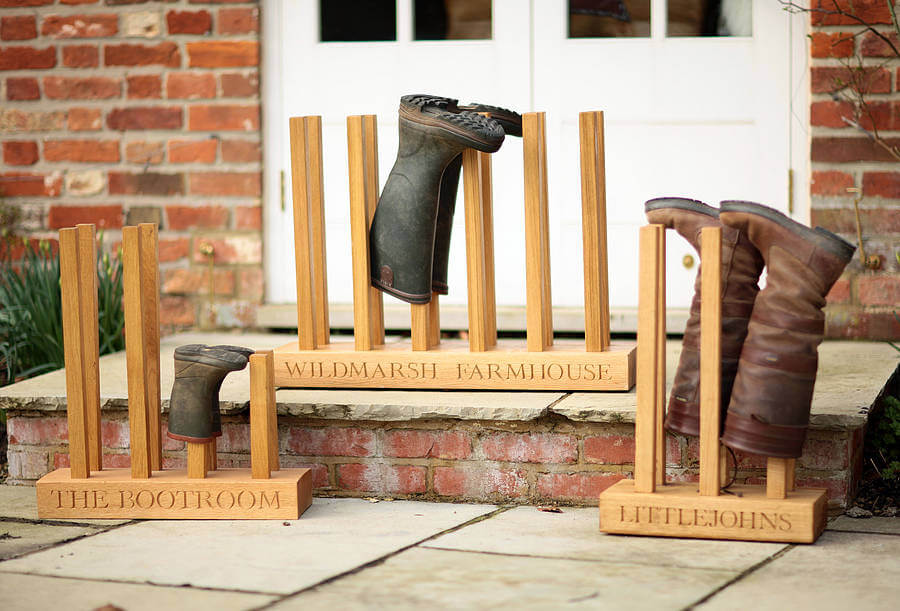
While dogs are often considered man’s best friend, work boots must come pretty close! You wear them all day, every day and they help you comfortably get through whatever conditions you work through. After a gruelling day’s work, it’s hardly surprising if your boots don’t smell fresh. However, there are some simple best practices you can follow to minimise ‘stink’ and avoid your boots developing serious odours.
This article will discuss 6 ideas you can use to stop (or at least slow down) your boots from smelling.
 1. Choose the right boots
1. Choose the right boots
The most important (and obvious) best practice to keep your boots smelling fresh is to buy suitable work boots in the first place. While modern work boots have offered a whole new level of protection and comfort thanks to features such as insulated linings and safety caps, these features have also lowered the breathability of the boots. This means your feet will possibly sweat more and sweat sooner as you go about your day’s work. Some factors you may want to consider before buying your next pair of boots include:
- Composite safety toe caps don’t conduct heat like steel caps do and will reduce how much your feet sweat. Read the pro’s and con’s of the two types here.
- If you require insulated boots in your job (i.e. if you work in a cold store), zip sided boots allow you to open the zip partially when your feet are overheating to allow ventilation.
- Leather is less breathable than meshed/woven synthetic materials, so your feet will sweat more. If you require the advantages leather boots offer, such as its superior durability, ensure the tongue is a synthetic meshing of some sort, so your feet aren’t blocked from airflow altogether.
- Cheap, synthetic leather is less breathable than natural leather, so isn’t generally a great choice!
2. Keep your feet clean
Obviously, the core reason for boots smelling comes from your feet perspiring. As they sweat and moisture seeps in the boot’s material, bacteria and fungi thrive in the warm, humid conditions. By washing your feet often with antibacterial soap you will kill bacteria and the smell that comes with it.
3. Change your socks often and don’t wear cotton socks
Similarly to keeping your feet clean, changing your socks often for a fresh pair will reduce the build up of smelly bacteria. When you choose your work socks, avoid cotton if you can, as it absorbs moisture (including sweat), rather than wicking it away from your skin. This makes them smell more quickly and will leave your feet damp and uncomfortable. Woollen or bamboo socks are best for wicking moisture, which is why the military generally chooses merino socks.
4. Alternate boots
In an earlier post we discussed how having a couple of pairs of boots and wearing them on ‘every other day’ helps your boots last longer, as it gives them a chance to dry out properly after each use. Another advantage of practicing this, if your budget allows it, is as the moisture and sweat has a chance to evaporate, bacteria will not build up as quickly and your boots will stay smelling fresh for longer.
 5. Store your boots in a ventilated, light place
5. Store your boots in a ventilated, light place
After each use, store your boots in a place where they can be ventilated and dry properly. Bacteria thrives in dark, damp locations such as outdoor cupboards. To accelerate your boot’s drying, you can fill them with newspaper or stockings filled with baking soda. There are a couple more tips on drying your boots in this post.
Following these best practices will reduce bacteria build up in your boots and will keep them smelling fresher for longer. However, over time your boots will inevitably develop smells and odours as they absorb moisture and other substances from your day to day wear. Maybe it’s time for new boots?




2 Comments. Leave new
[…] manufactured materials. Leather soles are normally impervious to bacterial growth and smell and are best for workwear. Moreover, leather bottoms are breathable and permit your feet to inhale without any […]
[…] These are the easy steps to remove odor from muck boots: […]